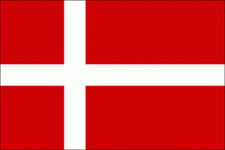
A combination of very strict national policies and rising border control across Europe has led to a historically low number of new asylum seekers arriving in Denmark (measured per capita). Between 2008 and 2014, Denmark ranked between 13th and 5th in the European Union (EU) in terms of number of asylum seekers, but dropped down the list to 20th place in 2021. The only countries receiving fewer asylum seekers than Denmark are Lithuania, Poland, Portugal, the Czech Republic, Slovakia, Estonia and Hungary.
A similar trend can be seen in Sweden, which topped the list in 2013 and dropped down to number 14 in 2021. Arrivals in the two countries are closely connected, as most people have to pass through Denmark to reach Sweden. When Sweden closed its borders for 18 months in 2016 - 17, there was an immediate drop in asylum applications in Denmark.
New Danish Minister of Immigration and Integration Kaare Dybvad Bek said: “The numbers show that the government has kept its election promises: maintaining a strict immigration policy and a low number of arrivals. This ensures that we can slowly correct decades of failed integration policies. We see far more immigrants entering the labour market now; in fact the work frequency for non-western immigrants was at a record high in 2021.”
However, historically, the two periods that saw the largest numbers of new arrivals - Bosnians in 1995 and Syrians and Eritreans in 2016 - also saw some of the most successful integration. Furthermore Sweden, which is socially very similar to Denmark, receives higher numbers of refugees overall and is far more successful at refugee labour market integration.
Local municipalities in Denmark are now having trouble securing integration support for Ukrainian refugees, since hundreds of integration workers have lost their jobs as a result of low numbers of new arrivals since 2016.
The Danish Refugee Council (DRC), working in integration since 1956, finds that the country's current, strict policies are in fact counterproductive for integration. It has become almost impossible for refugees to achieve permanent residency and citizenship, in spite of their increasing number in the labour market, and many live in constant fear of losing their temporary permit - even after having lived for many years in the country. This leads to psychological distress and creates a feeling of not being part of Danish society.
Details
- Publication dates
- Geographic area
- Denmark
- Source
- Posted by
